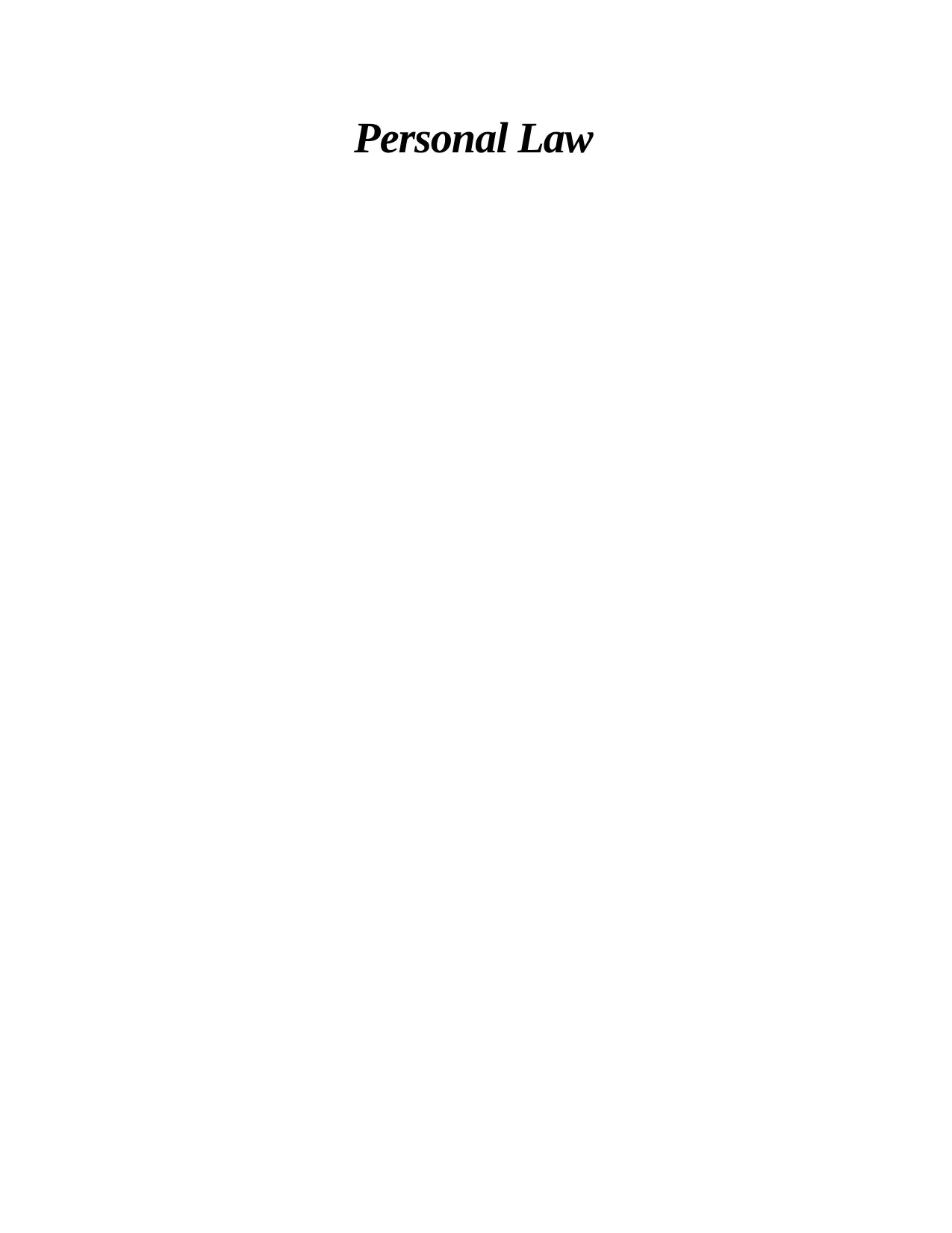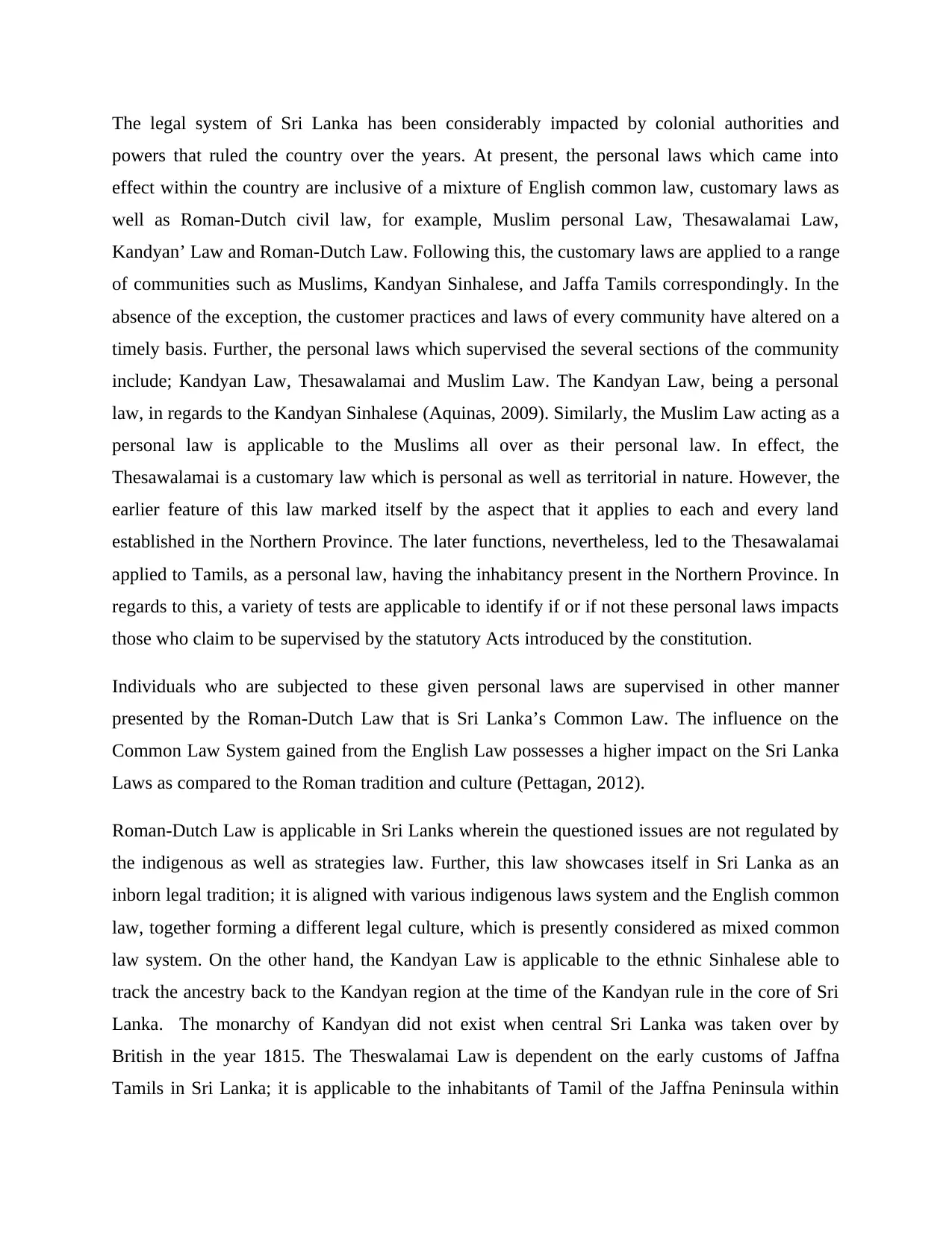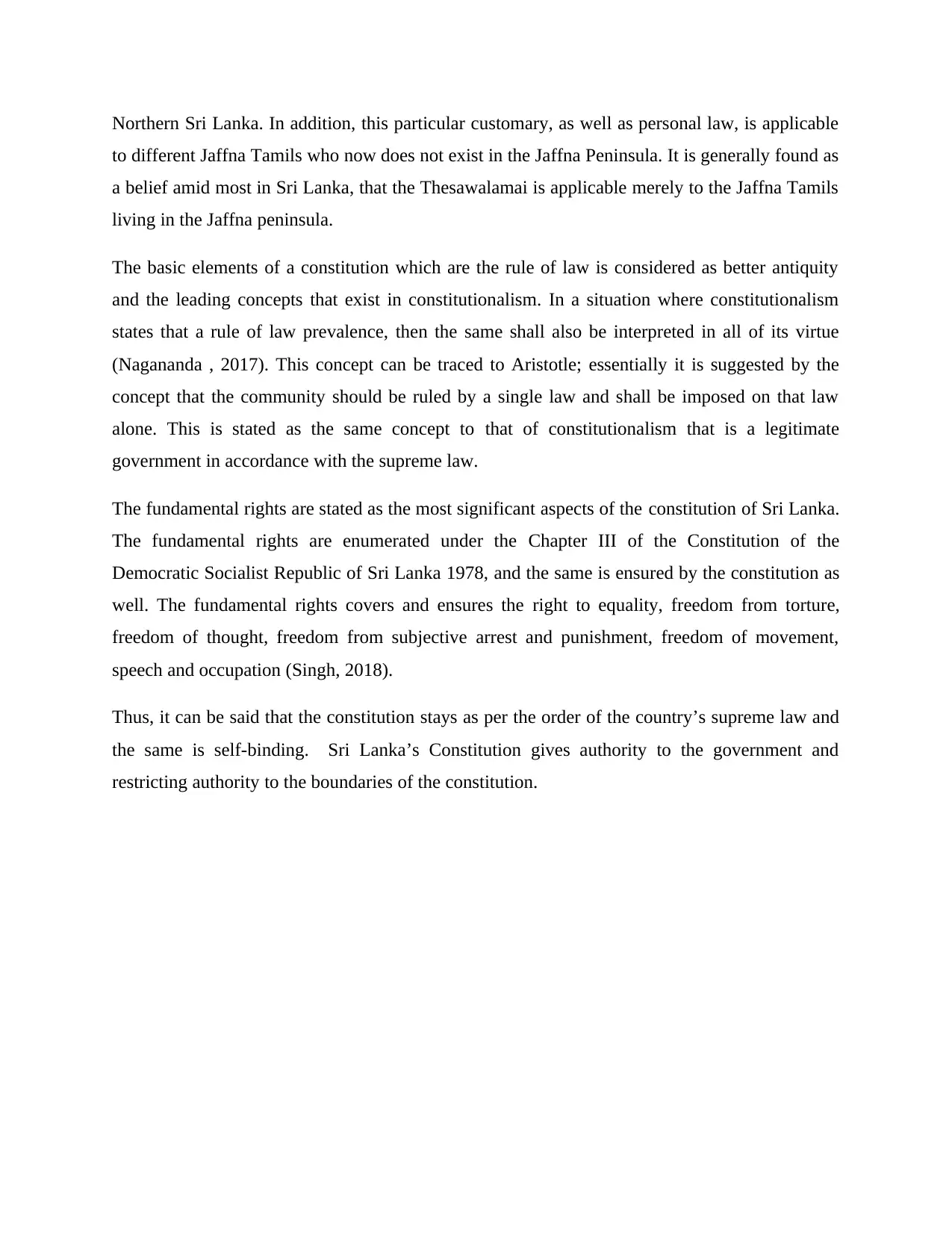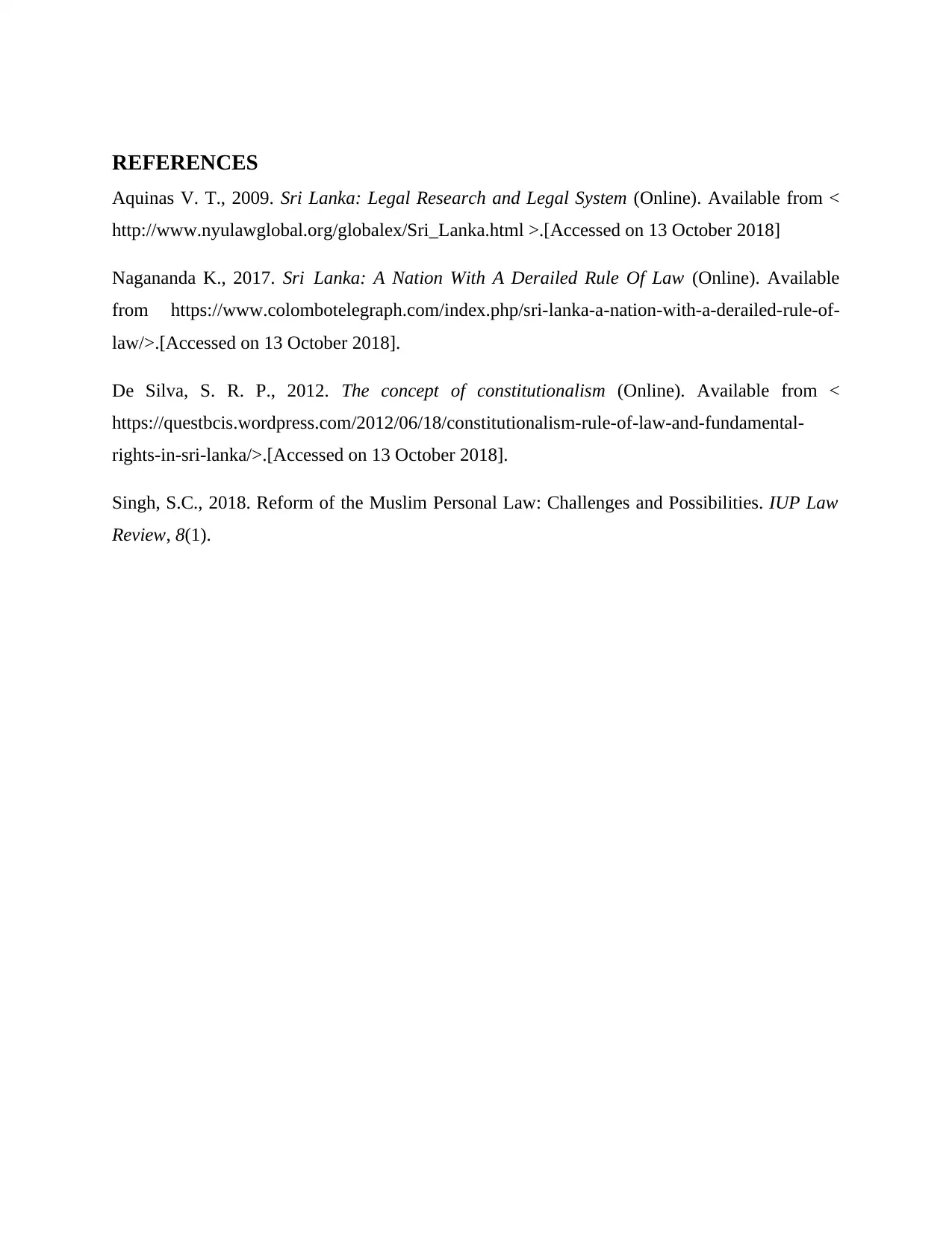Analysis of Sri Lanka's Legal System and Personal Laws
VerifiedAdded on 2023/06/03
|4
|958
|187
Essay
AI Summary
This essay provides a comprehensive overview of the legal system in Sri Lanka, highlighting the influence of colonial powers and the diverse range of personal laws currently in effect. It explores the interplay of English common law, Roman-Dutch civil law, and customary laws such as Muslim personal law, Thesawalamai law, and Kandyan law. The essay delves into the applicability of these personal laws to different communities and examines the concept of constitutionalism, emphasizing the importance of the rule of law and fundamental rights as enshrined in the Sri Lankan constitution. Furthermore, it discusses the application of Roman-Dutch law as the common law in areas not covered by indigenous or statutory laws and provides a detailed analysis of Kandyan and Thesawalamai laws and their respective applications. The essay also references relevant sources to support its arguments, offering a detailed and insightful analysis of the legal landscape of Sri Lanka.
1 out of 4




![[object Object]](/_next/static/media/star-bottom.7253800d.svg)